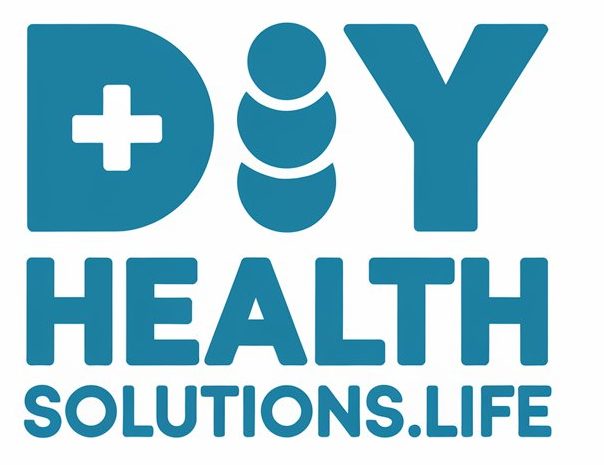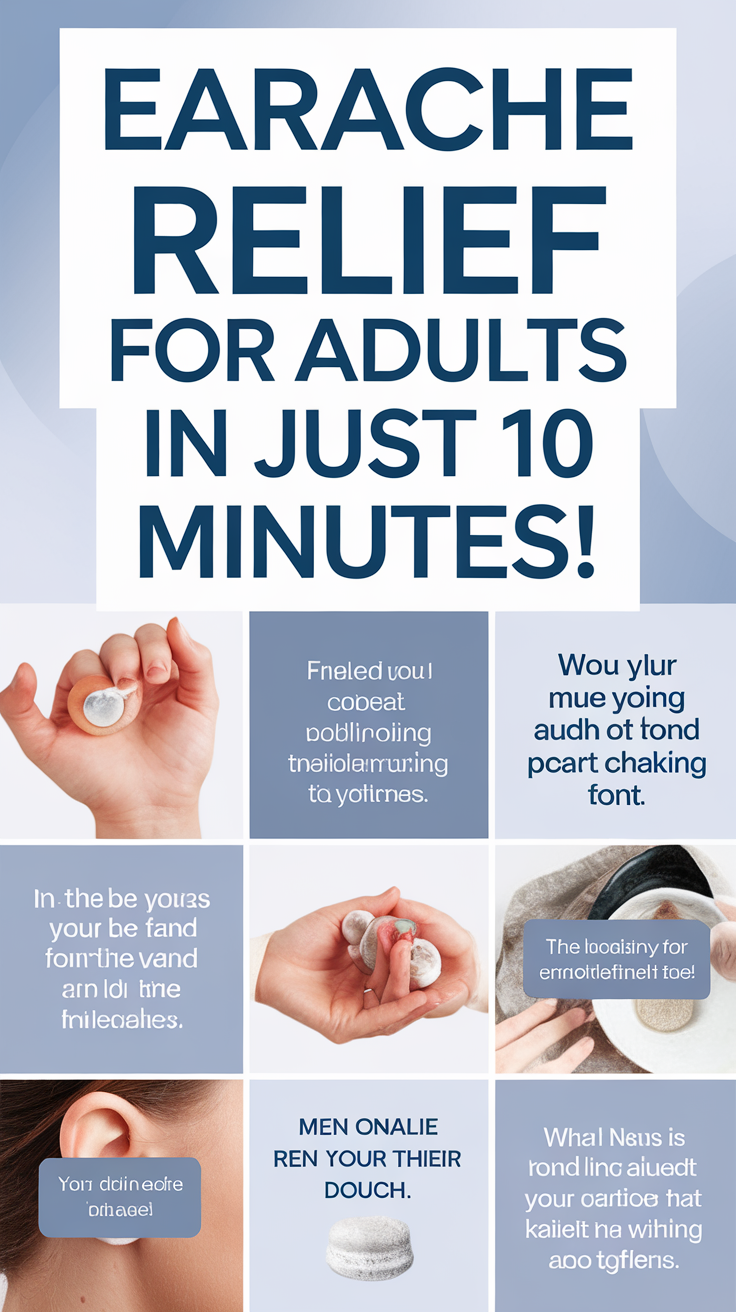Fast-Acting Remedies for Earache Relief
For fast relief from earache, try a warm compress on your ear for about 20 minutes to reduce inflammation. You can also use garlic oil, which provides anti-inflammatory benefits. Staying hydrated helps relieve ear pressure, while chewing gum may assist in equalizing it. Over-the-counter pain relievers like acetaminophen or ibuprofen can effectively manage discomfort. If your earache persists or worsens, it’s important to consult a healthcare provider. Remember, acting quickly can prevent further complications; there are more details and remedies that can keep you comfortable in challenging situations.
Key Takeaways
- Apply a warm compress to the affected ear for 20 minutes to soothe inflammation and provide immediate relief.
- Use garlic oil, known for its anti-inflammatory properties, by applying a few drops to the ear.
- Stay hydrated to help relieve pressure and discomfort in your ears effectively.
- Chew gum or yawn to help equalize ear pressure, especially during times of congestion.
- Consider over-the-counter pain relievers like ibuprofen or acetaminophen for quick pain management.
Common Causes of Earaches
Earaches can stem from several common causes, making it important to identify the source of your discomfort. One of the most prevalent causes is ear infections, which can be classified into different infection types, such as outer ear infections (otitis externa) and middle ear infections (otitis media). These infections often occur due to bacteria or viruses, leading to inflammation and pain.
Allergy impacts can also contribute to earaches. When you experience allergies, nasal congestion can block the Eustachian tubes, causing pressure and discomfort in your ears. This blockage can create a breeding ground for bacteria, increasing the risk of infection.
Other factors like sinus infections and seasonal allergies can exacerbate ear pain as well. If you’ve been exposed to allergens like pollen, dust, or pet dander, they may trigger inflammation that affects your ears.
In some cases, even changes in altitude or water exposure can lead to discomfort.
Recognizing these common causes helps you address your earache more effectively. By understanding what might be causing your pain, you can take the necessary steps to seek relief and improve your overall ear health.
Home Remedies for Immediate Relief
Finding relief from earache discomfort can be a priority, especially when it disrupts your daily life. Fortunately, several home remedies can provide immediate comfort.
One effective method is using a warm compress. Simply soak a clean cloth in warm water, wring it out, and place it against your ear for about 20 minutes. The warmth can help soothe inflammation and alleviate pain. Remember to check the temperature to avoid burns.
Another option is garlic oil, known for its anti-inflammatory properties. You can make garlic oil by crushing a couple of garlic cloves and heating them in a tablespoon of olive oil. Once it cools, strain the mixture and apply a few drops into the affected ear. This can help reduce pain and fight potential infection.
Additionally, staying hydrated and chewing gum may help relieve pressure in your ears. If you’re experiencing congestion, try inhaling steam or using a saline nasal spray to clear your sinuses.
These remedies can provide quick relief, but if your earache persists or worsens, it’s important to consult a healthcare professional for further evaluation.
Over-the-Counter Pain Relievers
When you’re in pain, reaching for over-the-counter pain relievers can be a quick solution to ease earache discomfort. These medication options are readily available and can provide you with effective pain management.
Common choices include:
- Acetaminophen: Great for reducing pain and fever, it’s a gentle option that’s often well-tolerated.
- Ibuprofen: This nonsteroidal anti-inflammatory drug (NSAID) helps not only with pain relief but also reduces inflammation, making it suitable for earaches caused by swelling.
- Aspirin: While effective, be cautious with this option, especially in children or teenagers due to the risk of Reye’s syndrome.
Before taking any medication, you should always check the label for proper dosage and any potential interactions with other drugs you may be using.
If you’re unsure, consult a pharmacist or healthcare professional. While these medications can provide temporary relief, remember they only address the symptoms.
If your earache persists or worsens, it’s important to explore other treatment options. So, next time you feel that familiar discomfort, these over-the-counter options can be a helpful first step in finding relief.
When to Seek Medical Help
The urgency of addressing persistent ear pain can’t be overstated. If your earache lasts more than a couple of days or worsens, it’s time to seek medical help. Ignoring prolonged symptoms could lead to complications. A healthcare provider can perform a thorough symptom evaluation, identifying the underlying cause of your discomfort.
You should also consider seeking medical attention if you experience additional symptoms like fever, fluid draining from your ear, or significant hearing loss. These signs may indicate an infection or other serious condition that requires prompt treatment options.
Don’t hesitate to consult a doctor if your earache is accompanied by severe pain, especially if it disrupts your daily activities or sleep.
In some cases, over-the-counter pain relievers may not be enough. A healthcare professional can recommend suitable medications or treatments tailored to your specific situation.
Preventive Measures for Earaches
Taking proactive steps can greatly reduce your risk of developing earaches. By maintaining good ear hygiene and adopting a few simple habits, you can protect your ears from discomfort.
Here are some effective preventive measures you can take:
-
Keep your ears dry: After swimming or bathing, gently dry your ears with a towel. Avoid inserting cotton swabs or other objects into your ear canal, as they can push wax deeper and cause blockages.
-
Use warm compresses: If you feel any ear discomfort, applying a warm compress can help alleviate pressure. This can be particularly useful during seasonal changes when colds and allergies are more prevalent.
-
Stay up to date with vaccinations: Make sure you’re vaccinated against illnesses like the flu and pneumonia, which can contribute to ear infections.
Frequently Asked Questions
Can Earaches Affect Hearing Temporarily or Permanently?
Like a storm cloud passing overhead, earaches can temporarily affect your hearing. If untreated, they might lead to permanent damage. It’s crucial to address any ear discomfort promptly to protect your hearing health.
Are Earaches Contagious or a Sign of Infection?
Earaches themselves aren’t contagious, but they often signal an ear infection. If you’ve got one, it’s essential to monitor symptoms, as infections can spread, leading to discomfort for others in close contact with you.
What Are the Best Sleeping Positions for Earache Relief?
When you’re battling an earache, sleeping positions can feel like a game-changer! Try resting on your side with the affected ear up, or prop yourself up to reduce pressure and enhance earache relief.
Can Allergies Cause Earaches in Adults?
Yes, allergies can cause earaches in adults. When allergy symptoms arise, they often lead to ear congestion, resulting in pressure and discomfort. It is crucial to manage allergies to prevent ear-related issues from occurring.
Are There Age-Specific Remedies for Children’s Earaches?
Yes, there are age-specific remedies for children’s earaches. You can try home remedies like warm compresses or elevate their head. Pediatric treatments may include gentle pain relievers or consult a doctor for tailored advice.





